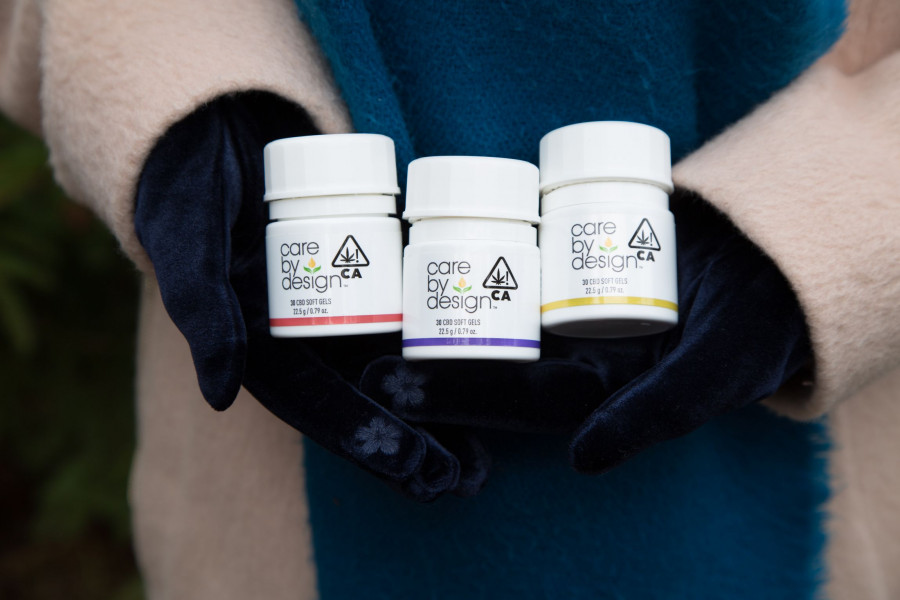One standout area in the community health that isn't getting nearly enough attention these days, is cultivating a healthy immune system. Yes, the reminder to "boost your immune system" sounds easy enough, but what does that actually entail?
The immune system is a tricky little scientific wonder deeply connected to how we feel, both physically and emotionally. As one of the most complex and intricate networks of cells and proteins that the body has, the core function of the immune system is to defend the body against unfamiliar or external threats. Working synergistically throughout the body in order to protect it and maintain a stable internal environment (also known as homeostasis), the immune system is both something that you're innately born with and something that is developed over time as your body becomes exposed to different things. This makes the process of keeping it strong a bit more involved than simply putting a bandage on a cut or taking a vitamin in the morning. Thankfully, the immune system naturally and instinctively kicks in without you having to tell it what to do.
That being said, there are an array of conscious decisions we can make to help strengthen the innate and adaptive immune systems as they do all the heavy lifting. Here are five ways to kickstart your immune system as we greet the new year.
1. Get some sleep, you deserve it.
We've all been told to listen to our bodies, and frankly, such a reminder never hurts.
As research continues to delve deeper into the connections between sleep and physical health, it has become increasingly clear how not getting an adequate night of sleep can really throw off how you feel throughout the day. Studies have shown that a lack of sleep, whether in quality or quantity, can increase the likelihood of getting sick after being exposed to a virus, as well as can impact the body's ability to recover when you do get sick. By letting the body rest (especially when it's telling you it needs it!), you are giving the immune system an opportunity to recharge, reduce stress, conserve energy and overall support its integral functions.
2. Do what you can to eat a healthy, balanced diet.
We know, we know. It's the beginning of a new year and it can feel like everyone is collectively shouting on social media that they are leaving unhealthy food choices behind in 2020. While advocating for a healthy diet may feel on trend with every new year's resolution ever since the beginning of time, there are an array of benefits to hitting the reset button when it comes to your day-to-day eating habits.
The nutrients we get from food, especially protein and plant-based foods such as fruits, vegetables, herbs and spices, play a direct role in helping keep the immune system functioning as it's designed to. When looking a bit closer at scientific research, it can feel a bit daunting or overwhelming to see what vitamins and nutrients specifically help the immune system do what it needs to do. This list includes zinc, folate, iron, copper, selenium and vitamins A, B6, B12, C, D, E, to name a few, with each having their own properties that can aid in supporting immune function and overall health.
Instead of instinctually overloading your medicine cabinet with dietary supplements and vitamins--always consult with your healthcare provider to avoid harmful or negative side effects--it's great to keep it simple and set a goal of fueling your body through food. Incorporating oranges, red peppers and grapefruit into your diet, among many other natural sources of vitamin C is a great place to get started, for one example. Being mindful of eating healthy may feel like an impossible task at times, but making small, subtle shifts in how how you approach your day-to-day diet can go a long way.

3. Exercise regularly.
While this may sound like just another new year's resolution that will fade by February, adding exercise into your regular routine is a great way to support your immune system.
While scientists continue to examine with detailed specificity how exercise and the immune system relate to one another, particularly in the short term, there is plenty of evidence that shows how frequent exercise and an active lifestyle can yield a multitude of positive health benefits. Evidence shows that a physically active lifestyle can diminish the risk of your body getting sick when exposed to unwanted viruses, as well as can strengthen your immune system's ability to fight and protect.
While everyone's bodies and physical abilities are different, and there is no right or wrong way to exercise, remember that similar to making healthy food choices, doing a little bit each day can make a big difference in both the short and long term alike. Activities such as walking, hiking, running, cycling, dancing, tennis, swimming, water aerobics, strength training, flexibility training, yoga and stretching are all recommended for enhancing or maintaining physical fitness, and therefore, physical health. As we learn more about the links between physical health and our immune systems, strengthening our bodies is undeniably important and something that we can consciously improve upon every day. Here are some ideas for getting your exercise at home.

4. Reduce stress.
Easier said than done, right? Trying to minimize stress can literally cause more stress at times, but it doesn't always have to be that way. Evidence shows that emotional stress is linked to a wide variety of less-than-fun physical symptoms including abdominal pain, nausea, headaches, rapid breathing or shortness of breath, muscle tension, dizziness, increased heart rate, and even can impact your mood, appetite, or sleep pattern (all of which can influence your immune system). Simply reading that list is enough to stress a person out!
Taking steps to reduce stress looks different for each person, but some proven recommendations span from listening to music to deep breathing exercises to cutting back on social obligations (more ways to help you relax). As you get to know your body and learn more about what triggers a stress response, your ability to reduce stress will become more seasoned. Learning how to reduce your stress and employ better coping strategies can often include enlisting professional help. Working with a counselor or licensed therapist can help you identify a detailed plan of action that best suits you individually. Cheers to a less-stressed, healthier and stronger 2021!
Sources
- Structure and function of the immune system
- Lack of sleep: Can it make you sick?
- Sleep and immune function
- Vitamin C, Fact Sheet for Health Professionals
- Debunking the Myth of Exercise-Induced Immune Suppression
- The compelling link between physical activity and the body's defense system
- Boost the Immune System
- How to boost your immune system
- How to manage stress
- Cannabis and Cannabinoids: What You Need To Know
Info from CannaCraft's Director of Product Development, Matt Elmes, PhD.
